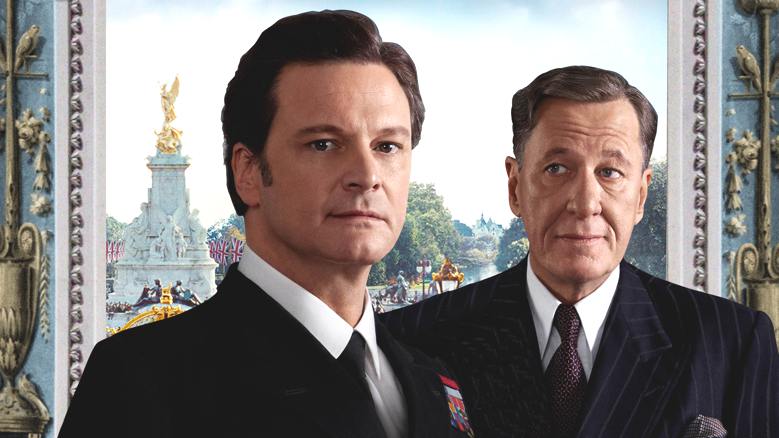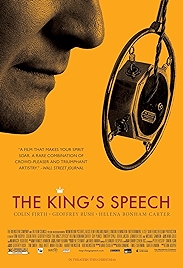A movie for every day of the year – a good one
19 June
Wallis Simpson born, 1896
On this day in 1896, Bessie Wallis Warfield was born in Blue Ridge Summit, Pennsylvania. Her father died of tuberculosis when she was only a few months old and she was supported by various members of her father’s family, until her mother remarried, though it was her father’s brother who paid for her to attend Maryland’s most expensive girls school.
Bright, ambitious and always well dressed, Wallis was popular and in 1916 she married a US Navy aviator, Earl Winfield Spencer Jr. An alcoholic and womaniser, her husband and Wallis had an on-off relationship with Wallis also having affairs. In December 1927 they divorced. Wallis then married Ernest Aldrich Simpson, a shipping executive, lost all her own money in the Wall Street Crash, but continued to be comfortable, thanks to her husband’s wealth.
In 1931 she met Thelma, Lady Furness, who was the mistress of Edward, Prince of Wales, the heir to the British throne. As her husband’s money also started running out, Wallis was also becoming closer to the Prince and, in 1934 while Lady Furness was in New York, she took over her role as unofficial royal concubine. In 1936, the king, George V died and Edward became King Edward VIII.
His relationship to the divorced Wallis (on the way to her second divorce when Prince Edward became king) caused a constitutional crisis – as head of the Church of England Edward could not marry a divorcee. Under pressure, Wallis agreed to give up the King. But the King wouldn’t give up her and abdicated his crown rather than not be with, in the slightly shocking words he used in his radio speech to the nation, “the woman I love”.
Wallis and Edward married a month later, in June 1937, though were ostracised by the Royal Family. Becoming the Duke and Duchess of Windsor, the couple moved around Europe, where they were constantly suspected of being Nazi sympathisers, before Edward was made the governor of the Bahamas for the duration of the war. Where they were again suspected of being Nazi sympathisers, or even spies. After the war they returned to France, where they lived for the rest of their lives. The Duke died in 1972, Wallis in 1986.
The King’s Speech (2010, dir: Tom Hooper)
In many ways a small and average film, The King’s Speech is lifted into another realm by its looks and its performances. The story of the man who wouldn’t be king, but who is suddenly thrust into the role by the hasty abdication of his brother, Edward VII, it’s a triumph-against-adversity tale of a stuttering king and also a tentative bromance – his relationship with the speech therapist preparing him for (jeopardy alert) the king’s big speech. These tentpoles in place, let’s take a squint at the look of the thing. Shot not in the usual sepia tones used for stories set in the past, but in bright rich colour, it also makes much of the new technology that was around at the time. In particular there’s a fetishisation of radio equipment, microphones, dials and switches. The 1930s, we see, are a staging post between the old and the modern. These people are more like us than we know.
As for the cast, Colin Firth is exquisite as the new king, Helena Bonham Carter as the Queen is a fiery ball of tenacity wrapped in fluff, a fierce terrier you wouldn’t want to be on the wrong side of. But it’s Geoffrey Rush who should win the plaudits, as the speech therapist whose profession requires him to establish a doctor/patient relationship, but whose bluff Australian character tends more towards the matey. His attempts to subvert or otherwise get around royal protocol are what give the film a lot of its entertainment value. Rush’s performance as a whole is majestic (if that isn’t the wrong word), so many tiny tilts of the head conveying so much withheld feeling and knowledge. Fellow Aussie Guy Pearce really isn’t bad either, as the possibly gay, certainly effete Prince Edward, a dim, self-centred, pussywhipped hedonist with few redeeming features.
Like The Queen, made four years before, The King’s Speech is unashamedly royalist. How bloody marvellous they are, these people – decent paragons of middle class values (playing with the kids before bed), humble, thrifty and so on. The film chimes entirely with our new conservative puritan age – reassuring, deferential, aspirational, apolitical, cosy. Tom Hooper’s camera catches it all with a slightly impressionistic brush but he’s not afraid to use the camera to express emotion when it’s needed – angular rooms standing in for exposition of spiky mood. Most of all Hooper and screenwriter David Seidler are to be praised for their decision to do it straight – storytelling this bold and clear isn’t anywhere near as easy as it looks.
Why Watch?
- Four Oscars, including Best Picture
- A cast of real depth, including Michael Gambon, Jennifer Ehle and Derek Jacobi
- Geoffrey Rush – Oscar nominated but losing to Christian Bale (for The Fighter)
- Eve Stewart’s smart production design
The King’s Speech – Watch it now at Amazon
I am an Amazon affiliate
© Steve Morrissey 2014

